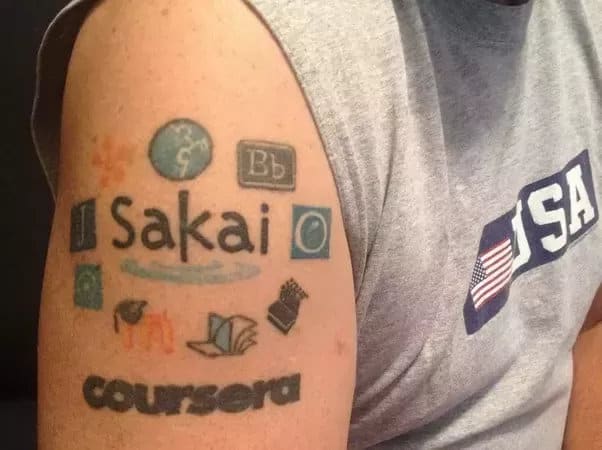What do professors think of Coursera’s new subscription model?
Two popular Coursera professors share their take on Coursera’s monetization changes
What do professors think of Coursera’s new subscription model? originally appeared on Quora: the place to gain and share knowledge, empowering people to learn from others and better understand the world.
Answer by Wayne Whiteman, PhD, Senior Academic Professional, Georgia Tech
This does not make me happy. I can envision a time, not too far in the future, where I am going to be forced to put some of my material/content behind a paywall.
I offer 8 engineering courses on the Coursera platform. I am not happy with the subscription model. I have been involved with Coursera and MOOC courses for over 4 years.
I understand that Coursera needs to eventually generate positive revenue to continue operating. This appears to be the motive for moving from the payment for course certificates to a subscription model.
My problem with the whole process is that the content providers, like myself, have little input in this drive toward revenue generation.
I got into offering my material for altruistic reasons. I am fine with offering Coursera learners an option to buy services. But, I see a trend toward where content providers, like myself, are losing control of our content. I can envision a time, not too far in the future, where I am going to be forced to put some of my material/content behind a paywall.
This does not make me happy.
Related
- A Guide on How to Sign up for Coursera Courses for Free
- Programming an Essential Literacy for the Future
- MOOCs Started Out Completely Free. Where Are They Now?
Answer by Chuck Severance, Clinical Associate Professor at University of Michigan (1999-present)
Coursera is by far the best place to deliver a MOOC to achieve the greatest impact. Changes to their business model are frustrating, my reaction is to put my energy making the world a better place in concert with my strong and continuing support for Coursera.
I teach the Python for Everybody specialization (5 courses) and the Internet History course on Coursera and have been teaching on Coursera for over five years. I started working with Coursera technical staff back on 2012 when it first started. In 2014, I helped build the LTI implementation in Coursera and I think I am the only person with a Coursera tattoo (below). So I have some history.
Before I answer your direct (and excellent) question I will say that Coursera is by far the best place to deliver a MOOC to achieve the greatest impact. While there are many MOOC providers now, they all were made possible because of the work done in 2011 at Stanford and then at Coursera. Lets not forget that. I spent much of this summer preparing four new classes that will be the Web Applications for Everybody Specialization this Fall. I love Coursera and am proud to be part of Coursera.
The current model was arrived at in a series of steps that slowly pushed the most valuable bits of my content behind a paywall.
Now the sticky bits. I don’t like the subscription model and have been opposed to the evolution of the Coursera business model from “teach as many as possible and monetize from those who can pay” to “maximize revenue as much as possible, provide grants for those with need, and provide a second-class experience to non-paying students to encourage payment”. The current model was arrived at in a series of steps that slowly pushed the most valuable bits of my content behind a paywall. Like others, I got into this to maximize how far my content is distributed – and if there was money to be made (and there was) – great.
I was happiest when Coursera courses were 100% free and the only way revenue was generated was through certificates – and there was need-based financial aid available for those who could not pay for certificates. The most joyful (from my perspective) Coursera business model was back in 2014.
But with a yield rate of ~3% or less – the cost to *Coursera* to provide technical support, etc to the other 97% was non-trivial. So I get it. I know what a “perfect world” looks like and I know why things are the way they are. So I take the good for what it is and try to work around constraints that make me less happy.
I (unlike most Coursera professors) also publish *all* my educational content as Open Educational Resources (OER) that are freely reusable and re-mixable for anyone who might want to use them to teach without needing to pay me. Coursera’s ever broadening paywall was frustrating to me because it hid my free materials from those who would not pay.
So for the past three years, I have been building software that would let me host my material as a “MOOC of My Own”. Each of my MOOCs now lives on the free and open Internet with a domain like www.wa4e.com or www.py4e.com – these sites also serve as an outlet for my free OER materials. I built the Tsugi Framework for Building Learning Tools to create and host my own MOOCs. I did not want to use Open edX because .. (that is another whole question)
If you are a student in one of my Coursera MOOCs and you complain to my teaching assistants about the paywall – we refer them to my 100% free and 100% open web sites. Some students take the course on Coursera and do the homework on my independent web sites.
I would add that I also host the autograders and educational tools that I have built to support my course on these external sites- which allows me to develop a Tsugi tool once and deploy it in Coursera, edX, Sakai, Canvas, Moodle, etc.. using Learning Tools Interoperability – my tattoo below is the IMS LTI “Ring of Compliance”.
So, in summary, I continue to love Coursera and feel that it is *by far* the best MOOC provider and while the latest changes to their business model are frustrating, my reaction is to put my energy making the world a better place in concert with my strong and continuing support for Coursera.








Robert
I love Coursera. I am very grateful for the Coursera team for letting me audit their classes for free. But like the author of this article I have issues. Like him, I understand the need for revenue. But I have issues and here they are, offered for discussion.
1. Coursera wants their certificates to have gravitas and validity. To do so, they require that you provide a government issue photo ID of yourself and take an ongoing photo of yourself to assure them it is YOU that is taking the course and not someone you, say, have paid to type the correct answers.
For students with nothing to loose, this is an acceptable risk. For a retired senior, like myself, it is not. If you drill deep into Coursera’s user agreement, they recognize Coursera’s files could be breeched and that data could be compromised. Take a good look at your driver’s license and ask yourself if you want that circulating freely. I don’t and after repeated examination of my feelings, I still can’t bring myself to provide it.
I would ask that Coursera have two levels of certificates, one with the verified identify and one with not. I would happily pay a lesser fee for one without, as they offered previously.
I am planning to offer them my senior Photo ID with name on it, and let’s see if that’s enough. I will happily pay the going rate for one of their specializations if they accept it.
2. Coursera previously offered their courses starting on fixed dates and enrollment was well, Massive. Students were enthusiastic and there were lots of posts and students helping each other. Now classes are automated and offered at fixed period.
Now I am talking w/o data, so what I say is based solely on my own experience. The Discussion Boards in my classes these last six months have been devoid of participants showing enthusiasm. Since students are paying for the classes time is money and most posts have to do with complaints about software and very little subject matter. (The Linguistics course, whose instructors insist that it be offered for free, was an exception.). There are no student maps offered any more in the courses (unless I’ve overlooked them), and no posts about working groups forming.
I happened to see two Ted talks given by the founders of edX and Coursera. Both speakers discussed these discussion boards and the groups and now they are gone. The Ted talks were heartbreaking because they outlined the founders vision for MOOCS and now those visions have been replaced.
3. While I am an expert at discovering how to audit Coursera’s courses, the privileges of auditing are shrinking. For some of their courses, auditing students are no longer allowed to take the quizzes.. I use these as diagnostics for learning and for other purposes and they are sorely missed. Nevertheless I get it–if you pay for a course, there should be some differentiation between those who pay and those who don’t.
Lest this post be interpreted as a sign of ingratitude, I wish to thank Coursera for all they have done for me in retirement.
zbecktx
I too love Coursera and am grateful for the free learning experiences it has afforded me. However, ultimately it’s not been worth it to me to invest in paying because even the paid certificates don’t have credit value in the formal educational system. Coursera trades, in no small part, in the name recognition of the distinguished institutions which “sponsor” courses, but Coursera certificates are not convertible to credit hours with any institution that I’m aware of. When that day comes I would happily fork over my money, though I think I prefer the per-course payment as opposed to subscription.
Ingénieur Pédagogique
Hello
I cannot find any technical support for course creator on Coursera, do
you know what technology they use? Is it like edx? Or do you need to be a
programmer to be able to build a course on their platform? Where can I
fund info on that?
Thank you